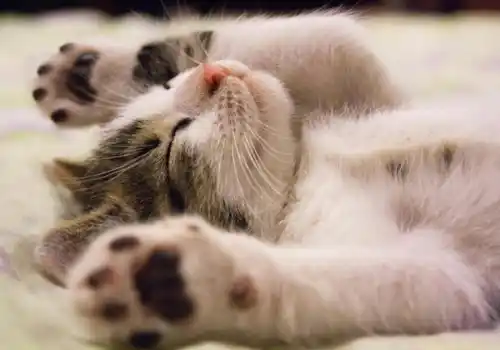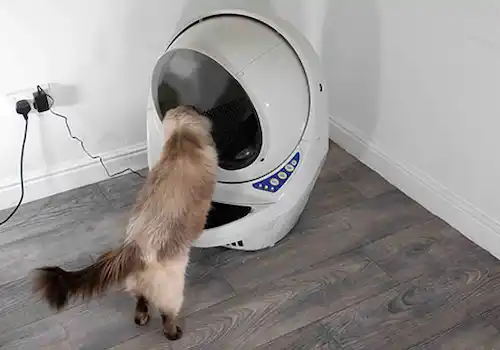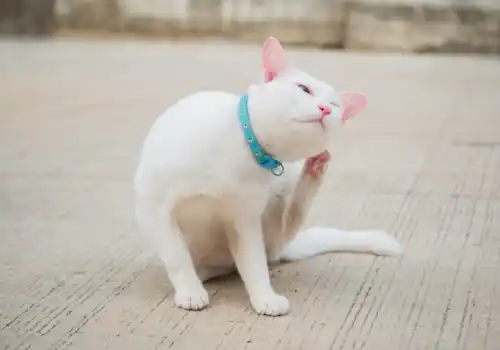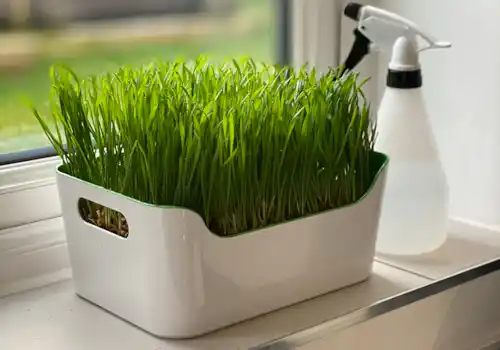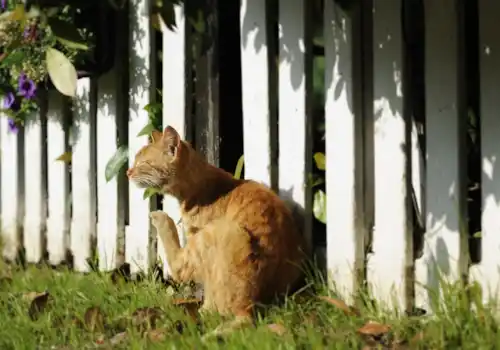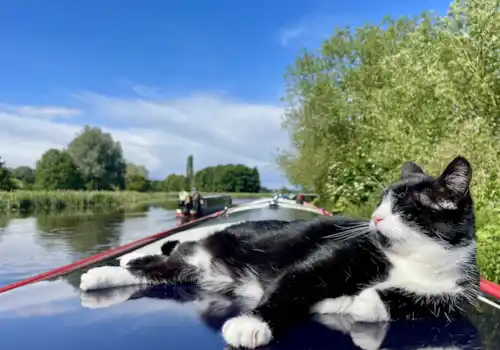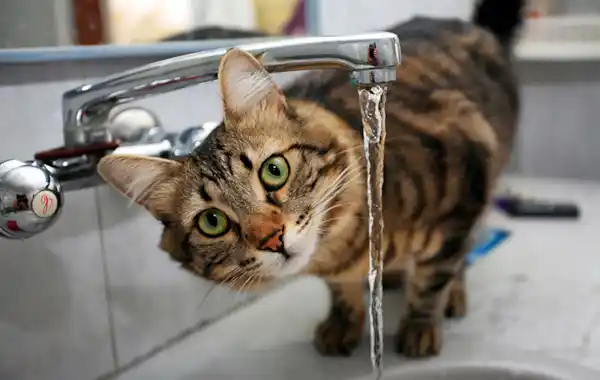After losing a cat to renal failure, a reader wonders whether to give tap or bottled water to his cat. Your Cat expert Aga Zoltowska advises.
I have just one simple question: which is healthier for cats, bottled or tap water?
After considerable personal research, I appear to have reached an impasse, with both bottled and tap water having potential health problems. The consensus opinion from enquiries with a number of local vet practices was that tap water is OK and it’s free!
My previous two cats were indoor cats. One drank only tap water but died from renal failure. The other cat, after being diagnosed with chronic renal failure, consumed only bottled water and lived a normal life (no visible symptoms) for a further three years. Both were of course on prescribed daily medication. So, my ‘simple question’ at the outset is clearly not so simple to answer!
Nevertheless, with the high incidence of renal failure among cats, I would appreciate comments on the matter of water for felines.
Gary Lanham, Birmingham
Aga says: This is definitely a very interesting question!
The information on the subject is limited at best. In 2016, there was an article published which talked about the issues. The researchers looked at the number of feline patients treated over a period of time and concluded that in the examined population of cats, drinking tap water was associated with an increased risk of chronic kidney disease and filtered water lowered the risk of the disease. I believe there is also a reported link between the levels of fluoride and kidney disease in children. In rats, fluoride causes death of cells in the kidney tubules. In rabbits, chronic fluoride intoxication affects the kidneys as well.
However, despite making interesting points, one has to remember that on the scale of usefulness of the evidence, the studies which look at the historical cases are not as useful as the studies where one sets up an experiment with very strict rules that are followed.
Unfortunately, the article I mentioned simply looked at the possible associations in a population. The issue of feline kidney disease is a very important one and we should continue to look for potential risk factors and strive to do better! However, I would not start panicking about the type of water used.
Though it is important to consider that the water (or rather the contaminants) may play an important role in the development of the disease, until more is known, I can only share with you what I do.
I prefer to drink mineral/natural water personally and only occasionally I drink tap water. I replace the water for my cats with either tap water or bottled water and the choice very much depends if I have a handy bottle of water when I notice the water bowl in need of a top-up.
Thank you for sending in this question. It is critical that we all constantly question the information available for the greater good of cats and people.

